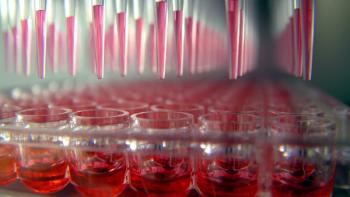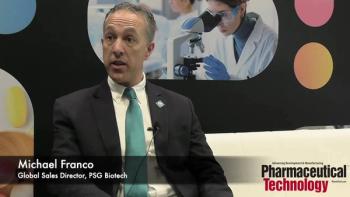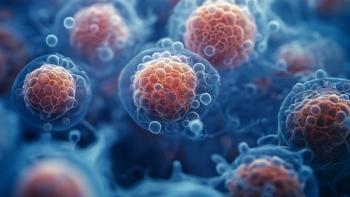
- BioPharm International-11-01-2019
- Volume 32
- Issue 11
The Latest in the Laboratory
The following details some of the latest tools and systems available for biopharmaceutical laboratory operations.
As research for immunology therapies and regenerative medicines advance, new instruments have been introduced to equip life-science research laboratories with needed tools.
Analytical products and services
Agilent’s InfinityLab LC/MSD iQ System for chemists and chromatographers in the company’s liquid chromatography–mass spectrometry (LC/MS) portfolio features incorporated instrument health monitoring and is designed to sit beneath a stack of Agilent’s InfinityLab HPLC instruments, saving lab space (1).
Embedded sensors gather data that allow for assessment of the system’s readiness, status, and configuration, and a system suitability check uses a test mixture that allows for an evaluation of the entire LC–MS system before data are collected. The instrument also has an early maintenance feedback feature for planned routine maintenance. The system can accommodate changing lab space and layouts and can be serviced without dismantling the stack.
“Chromatography labs can now eliminate complexity, increase productivity, and gain certainty with Agilent’s new LC/MS which delivers an additional level of detail, ease-of-use, in a space-saving design, and with intelligence built-in,” said Monty Benefiel, vice-president, and general manager of Agilent’s Mass Spectrometry Division, in a press release. “The InfinityLab LC/MSD iQ System is the simplest and quickest path to robust, reliable, and routine mass-based detection.”
In September 2019, Gyros Protein Technologies AB, a provider of automated nanoliter-scale immunoassays, peptide synthesizers, and reagents, introduced Gyrolab p24 Kit for lentivirus titer determination in lentivirus vector manufacturing (2). The kit produces results 24-times faster than enzyme-linked immunosorbent assay (ELISA), according to the company, which can accelerate lentivirus bioprocess workflows. Data may be generated from small sample volumes and require 10-times less sample compared with ELISA. Minimal matrix interference reduces dilution, which increases sensitivity and accuracy.
“We’re excited to introduce the Gyrolab p24 Kit to our growing portfolio of ready-to-use kits, which are rapidly being adopted by researchers for the automated analysis of bioprocess samples. Our customers in the cell and gene therapy market value the workflow efficiency enabled by Gyrolab solutions, and we look forward to further supporting their efforts to develop the breakthrough therapies they are producing,” said Dan Calvo, CEO and president, Gyros Protein Technologies, in a press release.
Shimadzu Scientific Instruments’ (SSI) Micro-ESI 9030 interface, launched in August 2019, is compatible with the Nexera Mikros Microflow LCMS and enables micro flowrate analysis with the LCMS-9030 quadrupole time-of-flight (Q-TOF) system with shorter analysis times (3). The Micro-ESI 9030 detects components by optimizing the ESI probe position in relation to the sample injection port for low flow rates, maintaining microflow chromatography throughout the ion introduction process to the mass spectrometer. The interface allows for the removal of excess solvent, minimizes background noise, and enables stable analyses by using an optimized probe angle. Spray position and status can be checked by a high-resolution camera.
Cygnus Technologies, a Maravai LifeSciences Company, expanded its host cell protein (HCP) analysis services in June 2019 (4). New services include identifying and quantifying HCP impurities in biopharmaceuticals and vaccines that can impact product efficacy and stability. According to the company, regulators are requiring that companies use advanced methods to quantify and characterize HCPs.
Cygnus stated in a press release that its proprietary antibody affinity extraction (AAE) sample preparation method can be combined with mass spectrometry (MS) for this type of analysis. AAE, according to the company, enriches the HCPs up to 240 times so that low-abundance HCPs can be detected with MS.
“Many of our biopharma customers are already outsourcing the detection and sample prep (AAE) steps to us,” explained Ken Hoffman, founder and president of Cygnus, in the press release. “With the regulatory push for much more information on the HCPs present, even more customers are looking to outsource. Many do not have expensive mass spectrometers in their labs or mass spec teams on staff to handle these specialized analyses.”
Cell culture
myMATRIX MSC by denovoMATRIX, a German company that develops and manufactures biomimetic coatings for cultivating human stem cells, enhances the expansion process for human mesenchymal stem cells (hMSC) by promoting adhesion, proliferation, and high viability of hMSC (5). The novel surface of the product supports long-term expansion of hMSCs over 10 passages and more than 25 population doublings, the company reports. Furthermore, myMATRIX MSC enables expansion of hMSC in both serum-free and xeno-free media conditions.
A major challenge of hMSC-based therapy is the large-scale expansion of cells in order to achieve the cell numbers necessary for therapeutic treatment. Currently, bovine-derived fetal calf serum and human plasma-derived fibronectin are commonly used in hMSC culture, denovoMATRIX reports.
These biological extracts frequently reduce experimental reproducibility and present a liability for hMSC manufacturers. To increase lot-to-lot consistency and eliminate the risk of transmission of xenogenic infectious agents, defined cell culture conditions, including media and extracellular matrix mimetic coatings, are essential, according to the company.
Corning Incorporated launched its Corning MicroDEN automated perfusion cell culture system in October 2019 (6). The system provides streamlined process for differentiation of monocytes into dendritic cells by minimizing the manual steps, according to the company, which leads to reduced risk of contamination and more consistent yields.
The Corning MicroDEN system is jointly branded with Flaskworks and will be marketed, sold, and supported globally by Corning. The system includes the MicroDEN unit, manufactured by Flaskworks, and closed-system consumables (e.g., tissue culture-treated polystyrene flasks, storage bottles, and tubing) manufactured by Corning.
“MicroDEN leverages Corning’s strength in cell culture technology and is a strong strategic fit, addressing key emerging needs in cell therapy research and development,” said Keith Olson, vice-president, business operations and technology, Corning Life Sciences, in a press release. “Using MicroDEN for dendritic cell production provides a streamlined approach differentiated from the current manual processes, saving time for our customers.”
References
1. Agilent, “Agilent Introduces Intelligent LC/MS System for Chromatographers at ASMS 2019,” Press Release, June 3, 2019.
2. Gyros Protein Technologies, “Gyros Protein Technologies Introduces Gyrolab p24 Kit to Support the Cell and Gene Therapy Market,” Press Release, Sept. 9, 2019.
3. Shimadzu, “New Shimadzu Micro-ESI 9030 Flowrate Compatible Ionization Interface Enables Fast, Easy, High-Sensitive LCMS Q-TOF Analysis,” Press Release, Aug. 19, 2019.
4. Cygnus Technologies, “Cygnus Technologies Introduces Mass Spec Services for Host Cell Protein Impurity Characterization,” Press Release, June 24, 2019.
5. denovoMATRIX, “denovoMATRIX Introduces Ready-to-Use, Chemically Defined Coated Cell Cultureware for Serum-Free hMSC Expansion,” Press Release, Aug. 22, 2019.
6. Corning, “Corning Launches Corning MicroDEN Automated System for Generating Dendritic Cells,” Press Release, Oct. 4, 2019.
Article Details
BioPharm International
Vol. 32, No. 11
November 2019
Pages: 50–51
Citation
When referring to this article, please cite it as The Editors of BioPharm International, "The Latest in the Laboratory," BioPharm International 32 (11) 2019.
Articles in this issue
about 6 years ago
Biopharma modeling, now and five years from nowabout 6 years ago
A Diverse Landscape of Patent Issues Seen in the US, UK, and the EUabout 6 years ago
Modeling Comes of Age in Biopharmaover 6 years ago
Applying Lessons Learned from the Semiconductor Industryover 6 years ago
What’s New in Manufacturing: Downstream Technologiesover 6 years ago
KUBio Box for Viral Vectorsover 6 years ago
Zippered Lab Coatover 6 years ago
More Consistent Drug Inspection System on Horizonover 6 years ago
Signatures–What’s in a Name?Newsletter
Stay at the forefront of biopharmaceutical innovation—subscribe to BioPharm International for expert insights on drug development, manufacturing, compliance, and more.




